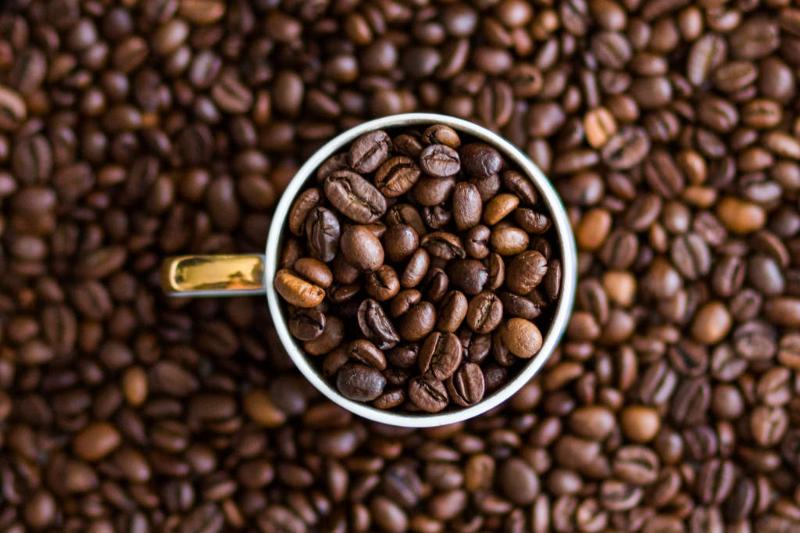With climate change, there are increasingly obvious changes to human life. Facing this impact will generally affect a number of large industries, including the global coffee industry.
However, Robusta beans are easy to grow, durable and can grow in a variety of climates. Therefore, they are considered a potential key to the future of the coffee industry. In fact, Arabica receives more love and is rated for better quality. As a result, many people wonder which type of bean—Arabica or Robusta—is more sustainable.
Distinguish between Robusta and Arabica beans
In fact, there are over 120 varieties of coffee worldwide. Nonetheless, Arabica accounts for 60% of coffee consumption, followed by Robusta (40%). Among these, Robusta is grown in West Africa along with Southeast Asian nations like Vietnam, India, and Indonesia. In contrast, Arabica is primarily grown in regions of East Africa and South America.
These two types of coffee will have different characteristics, they include:
|
Characteristics |
Robusta |
Arabica |
|
Growing conditions |
Robusta beans are grown in areas usually between 200 and 800 meters above sea level. |
Arabica is grown in areas with plenty of rainfall and colder temperatures at higher elevations, usually between 600 and 2000 meters above sea level. |
|
Shape |
Robusta beans have a more uniform and compact appearance, and their shape is more symmetrical and rounded. |
Arabica beans have a smoother surface, a slightly curved look, and a more oval or oblong form. |
|
Caffeine content |
Robusta beans have almost twice as much caffeine as Arabica beans, ranging from 2.2% to 2.7% by weight on average. |
Arabica beans typically provide 1.2% to 1.5% caffeine by weight. |
|
Aroma and taste |
With earthy, woodsy, and occasionally nutty or spicy overtones, robusta beans are renowned for their powerful, potent scent. |
Arabica coffee beans frequently feature traits such as flowers, fruits, and sweetness in their flavor. Additionally, they have a lighter, smoother texture, balanced tastes, and subtle acidity. |

The potential of Robusta coffee in the future
Compared to Robusta, Arabica currently has a higher consumption. However, due to climate change it may disappear by up to 50% by 2025. This can put many types of coffee plants at risk of extinction, or affect the soil so that coffee seeds, such as Arabica, do not fully develop and produce good flavor.
Conversely, thanks to its easy-to-cultivate nature, adaptability to various soil types and climates, and ability to produce a flavorful, rich coffee, Robusta is beginning to be acknowledged for its potential for growth in the coffee industry.
Read more: Getting to know Vietnamese coffee calories content
Why are Robusta beans more sustainable than Arabica beans?
The hidden power of the coffee industry is the sustainable Robusta coffee. So, what are the fundamental factors that have helped Robusta beans become more durable and popular in recent years? Let's take a look at the following highlights.
Can adapt and sustain
As was previously said, Robusta beans are well known for their hardiness and adaptability in various soil conditions and climates. Robusta coffee plants can do well in lower altitudes and warmer temperatures than Arabica plants, which makes them acceptable for cultivation in areas where Arabica plants could struggle.
The Robusta beans’ adapt factor makes it an increasingly appealing option for farmers and producers as the world’s coffee demand rises and climate change challenges coffee cultivation. This places Robusta Coffee in a pivotal position to shape the coffee industry's future.

Sustainable Robusta coffee through climates condition
Good for biodiversity
The production of Robusta coffee can improve ecosystem services and soil health. Robusta plants contribute organic matter and leaf litter to the soil, which promotes microbial diversity and improves nitrogen cycling. This, in turn, helps sustain soil fertility over time and improves other crops produced nearby.
Furthermore, organic farming techniques and Robusta's agroforestry systems reduce the need for chemical inputs and advance ecological equilibrium. Robusta coffee growing contributes to the preservation of water sources, the avoidance of soil erosion, and the general health of ecosystems by lowering the need for artificial fertilizers and pesticides.
Future of Coffee farming.
For a variety of reasons, robusta beans are essential to coffee farmers. To begin with, compared to Arabica plants, Robusta coffee plants are recognized for producing larger yields, which boosts farmer productivity and income.
Furthermore, Robusta beans have a higher resistance to pests and diseases, which lowers the demand for pricey fertilizers and pesticides and production costs.

Aid in supporting coffee farmers
Specifically, Robusta beans produce a smoother, richer cup of coffee with more caffeine, which helps give drinkers more energy. This creates the possibility of higher demand for Robusta and positively impacts the lives of farmers growing Robusta varieties.
88 Coffee - Savor a rich cup of Robusta coffee
It can be seen that, with climate changes and global warming, the potential of the Robusta coffee variety is becoming increasingly of interest in the coffee industry. The outstanding aspects that Robusta brings, such as being rich in caffeine and not having a typical sour or bitter taste, ensure an enjoyable experience.

Experience a quality Robusta coffee at 88 Coffee
Thanks to that, Robusta coffee consumption has had positive changes. Therefore, to find high-quality and safe products, choose reputable brands.
88 Coffee - Proud to be a brand specializing in providing Robusta coffee, with quintessential coffee beans filtered in good red soil areas: Dak Lak, Lam Dong in Vietnam.
Traditional butter roasting is used on coffee beans to provide an amazing flavor that is best experienced immediately after consumption. Try our authentic Vietnamese Robusta coffee today!

